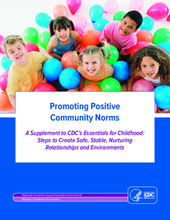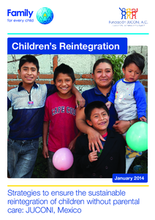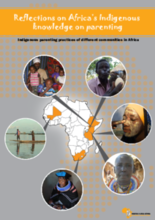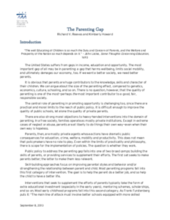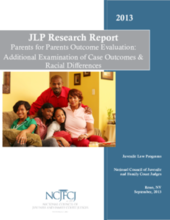This page contains documents and other resources related to children's care in the Americas. Browse resources by region, country, or category.
Displaying 481 - 490 of 566
This article uses data collected from adoptive parents’ postadoption and governmental data in Romania, Ukraine, India, Guatemala, and Ethiopia to focus on domestic adoption in each of these countries. The article highlights both promising practices in domestic adoption as well as policies and practices that require additional research.
After the cancellation of the 2013 US National Child Welfare Evaluation Summit, the Children’s Bureau decided to develop short videos as a means of sharing ideas and issues that could not be presented at the conference. The result is the Virtual Summit Series, a group of 17 videos that combine illustration, animation, motion graphics, and content from national experts.
This guide serves as a supplement to the United States CDC guide “Essentials for Childhood: Steps to Create Safe, Stable, Nurturing Relationships and Environments.” It provides guidance on creating a context for increasing safe, stable, nurturing relationships and environments for children and families by promoting positive community norms.
This paper reports on the Mexican arm of Family for Every Child’s three-country study on strategies to ensure the sustainable reintegration of children without parental care.
This report from SOS Children’s Villages and the University of Bedfordshire provides reviews and assessments of the implementation of the Guidelines for the Alternative Care of Children in 21 countries around the world.
This publication, produced by the Parenting in Africa Network (PAN), highlights the skillful parenting practices of several pastoral communities in Africa.
This article highlights a new family tracing program for children in foster care initiated by New York’s Administration for Children’s Services that borrows from Family Tracing and Reunification techniques used by the International Red Cross and other humanitarian agencies for reconnecting separated children with their relatives.
This paper by the Brookings Center on Children and Families examines the scope of parenting interventions in the US that directly address poor parenting, as research has found how much parenting matters.
This evaluation sought to explore the differences in case outcomes by program participation and racial groups.
The well known radio show This American Life has collaborated with Planet Money to investigate the work of a charity called GiveDirectly. Instead of funding schools or wells or livestock, GiveDirectly has decided to just give money directly to the poor people who need it, and let them decide how to spend it.


